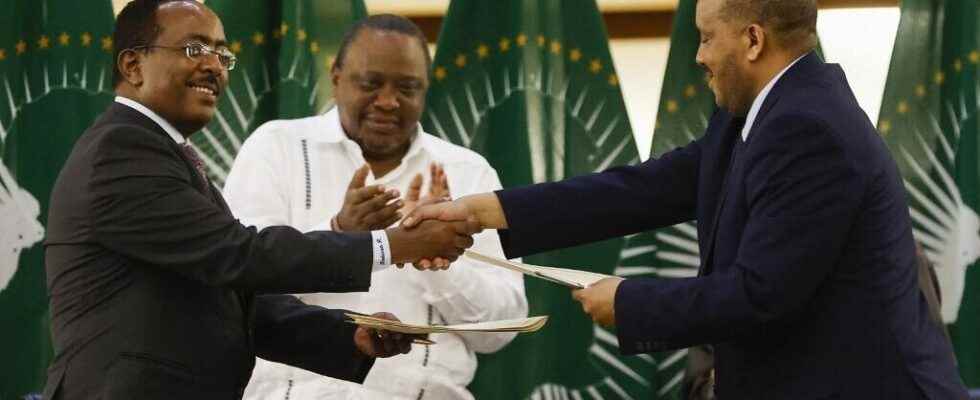Following the signing, in South Africa, of an agreement cessation of hostilities between the Ethiopian government and the Tigray authorities, the international community welcomes, to use the words of the British government, the choice of peace “. However, the text of the agreement itself is now being scrutinized by observers of the conflict, for whom many questions remain unanswered.
Like researcher Tim Vanden Bempt from the University of Ghent, who, this Thursday morning, is delighted with the relief of ” suffering of the people “, but for whom the Pretoria agreement ” leaves too many options open for fights to continue or resume later “. He wonders in particular about the presence and the future role of the Eritrean army in the Tigeras well as nationalist militiamen from Amhara, the “Fanos”.
And then, after all the crimes committed, wonders for his part Professor Kjetil Tronvoll of the University of Oslo, will Tigrayan civilians have confidence in the Ethiopian army to ensure their security, as stipulated in the agreement? Rashid Abdi, of the Sahan Research Institute in Nairobi, also wonders. ” A problem will arise if disarmament announced from the Tigrayan forces is simply intended to “ disadvantage Tigray and give Addis Ababa the power to use force as he sees fit.
► To read also: War in Tigray: the belligerents agree on “a cessation of hostilities”
” The only worthwhile solution is dialogue.”
” The key is the political will, not only to sign a document to make peace, but also to ” apply it in the field “. This was explained on Wednesday by one of the mediators of the african unionformer President Uhuru Kenyatta, to our correspondent, Roman Song : “ Responsibility for the success of the agreement rests with the Ethiopians. It is up to them to express the necessary will to make this process work. We can only assist them and we can only designate which belligerent violates which part of the agreement “.
” And I hope that as we leave Pretoria, all parties will speak to their people, talk to their militias and appeal to their different communities to start a process of dialogue that will force us to compromise and try to understand his next. Their differences won’t go away, but violence will never be the solution “, he said. And to add: The only worthwhile solution is political dialogue, sitting around a table and talking about having differences “.
All observers are therefore cautious, without optimism. Because for independent researcher and journalist René Lefort, a highly respected voice on Ethiopia, this peace agreement masks a very simple reality: according to him, it is a ” capitulation of the Tigrayans, neither more nor less.
For him, if the suffering of the civilian populations should indeed be alleviated, the repression to come will be merciless in a Tigray under Ethiopian military command, that is to say at the mercy of the Eritrean regime which, according to him, does not has not given up on putting the province ” under his tutelage “.
